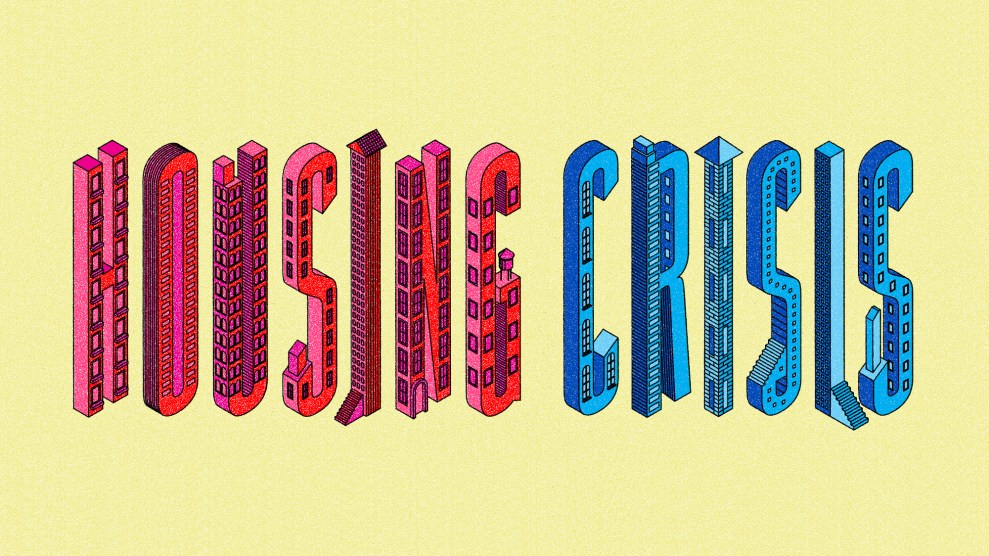TV pundits, op-ed columnists, and think-piece writers want the platonic ideal. A sagely figure who views politics from every angle—unconfined by the circumstantial common sense inscribed by their upbringing, geography, or social media algorithm. A perfect Homo omniviewpointicus. This is a person who does not live in a single “echo chamber.” This is a person of supreme rationality. This is a person who does not exist.
Pundits loathe echo chambers. Nicholas Kristof in a 2016 column wrote a warning of the “dangers of echo chambers on campus.” In 2012, Jennifer Rubin wondered “is the liberal echo chamber a trap?” And in 2020, David Brooks derided the “anti-Trump echo chamber.” The ire is assumed to be so self-evident that the problem is barely explained.
Usually, an echo chamber is described as a winnowed world of homogeneous viewpoints. Take Kristof’s critique. He cites a study by legal professor Cass Sunstein, which found that “when liberal judges happened to be temporarily put on a panel with other liberals, they usually swung leftward,” and vice versa with conservative judges. “It’s the judicial equivalent of a mob mentality,” Kristof concludes. Why this is bad, Kristof never explains. He assumes that there is no true enlightenment in this agreement. In fact, it seems whether a policy is good or bad doesn’t matter. The issue is that a consensus came from a place of political bias.
Of course, Kristof’s liberal and conservative binary is the product of its own bubble thinking. The United States often operates under a limited set of political possibilities, both compared to the rest of the world and the vast array of democratic formations that have existed throughout the history of civilization. One could forgive this as simply being practical. But that makes it all the more interesting to wonder the actual politics of blaming the echo chamber.
Pundits have faulted them for the rise of Boris Johnson, Donald Trump’s 2016 win, and Brexit. In each instance, the problem caused by the echo chamber supposedly stems from limited information. If only people knew the truth. The issue is: That’s not how information actually works.
Take social media. Echo chamber arguments have proliferated, in large part, as means to explain the ways technology has changed politics. Social media is routinely described as inciting the rise of “echo chambers [that] strengthen polarization,” as an article in Wired summed up the research of University of Southern California professor Kristina Lerman. But online, we often actually get more diverse views.
Political scientist Pablo Barberá found, in a 2015 working paper, that even users who follow mostly like-minded people eventually see increasingly heterogeneous ideological accounts. Other academic papers and studies have discovered that social media and the internet often increase the range of views to which people are exposed. Intuitively, this makes sense. The “algorithm” is less likely to create a bubble for you than living in a neighborhood surrounded by Republicans with limited media. At least online if you want to learn what fascist teenagers in Oregon or communist senior citizens in New England are up to, you can do that from the comfort of your home in a solidly red Virginia neighborhood of Never Trumpers.
The problem, then, is not information. It’s politics. What we think of as echo chambers are called by researchers “epistemic bubbles.” University of Utah philosophy professor C. Thi Nguyen notes a subtle distinction between the two: “In epistemic bubbles, other voices are not heard; in echo chambers, other voices are actively undermined.” In our world, we get contrary information; it is just that our “echo-chambered worldview has been arranged to dismiss [it],” explains Nguyen. We see the other side tweeting their argument. It confirms what we already believe—they’re wrong.
Why, then, do some misuse “echo chamber” so pervasively? It might have something to do with the convenience of the term. “Echo chamber” is a meta-critique. It does not engage with the actual merits or flaws of an argument. Other people are simply deluded reactionaries duped by Facebook. But while privately owned social media companies can influence us, they’re hardly the only things that do. Our core ideologies and values are determined by everything from where we grew up to whom we love, to the actual impact of politics on our lives. Fixing Facebook wouldn’t solve the problem of many echo chambers—your family’s opinions, your friend’s bigoted talking points—even if it’s a good idea.
In a way, those who worry about echo chambers are too hopeful. Many voters really do want Trump, Brexit, and other things that liberals abhor. A lot of people do not care, deep down, about democracy. Better information might not be a panacea for that, even if it would slow down a conspiracy theory like QAnon.
Let’s really imagine this cure, that perfect Homo omniviewpointicus. They are flooded with information. They know all; they see all. They’ve digested each piece of news. And they are full of data. Wait. That sounds kind of like someone who spends all day on Twitter.
















